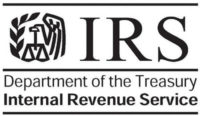The cannabis industry is an unprecedented industry and one under constant review and control. Following the November 2020 elections, fifteen states and Washington DC have legalized adult use cannabis, a number that will continue to grow as legalization slowly becomes more widely adopted in other states. Beyond that, a continuously growing number of states allow residents to purchase legal medicinal cannabis, and many have also decriminalized adult use. However, it still remains a Schedule I substance under the Controlled Substances Act and is therefore illegal on all accounts at the U.S. federal level, which creates a number of issues for businesses in the cannabis industry duly operating in states where it has been legalized.
Not only is it difficult for cannabis companies to avail themselves of alternative banking solutions, but there are also obstacles in place preventing these companies from taking advantage of notable tax deductions. The primary obstacle being Internal Revenue Code (IRC) Section 280E.
What is Section 280E?
 Section 280E is a relatively short code section, only 77 words to be exact, but it carries significant weight and can have a debilitating effect on the taxable income of marijuana [sic] related businesses (MRB). Section 280E of the IRC prohibits taxpayers who are engaged in the business of trafficking certain controlled substances, including cannabis, from deducting typical business expenses associated those activities. Section 280E, which was enacted in 1982 during the “War on Drugs” era, has become increasingly relevant for cannabis businesses. The cannabis industry has grown substantially in recent years with annual market values expected to reach $30 billion by 2025.
Section 280E is a relatively short code section, only 77 words to be exact, but it carries significant weight and can have a debilitating effect on the taxable income of marijuana [sic] related businesses (MRB). Section 280E of the IRC prohibits taxpayers who are engaged in the business of trafficking certain controlled substances, including cannabis, from deducting typical business expenses associated those activities. Section 280E, which was enacted in 1982 during the “War on Drugs” era, has become increasingly relevant for cannabis businesses. The cannabis industry has grown substantially in recent years with annual market values expected to reach $30 billion by 2025.
However, while Section 280E greatly restricts the tax deductions of state-legal cannabis businesses, there is some reprieve. Current IRC provisions permit state-legal cannabis businesses, including growers, producers, wholesalers or retailers, to deduct the Cost of Goods Sold (COGS) in computing their US federal income tax liability, despite the application of Section 280E.
Impact of Section 280E on Businesses
What does Section 280E mean for cannabis businesses today? It is intended to prevent dealers from claiming tax deductions for their business expenses, interpreted to include state-legal cannabis businesses, reduced deductions that result in increased taxable income and MRBs will face higher federal tax rates.
 The IRC disallows any deductions or credits paid or incurred during a tax year if those deductions or credits relate to trafficking controlled substances. The courts have taken the position that the term “trafficking” in this case means “engaging in a commercial activity – that is, to buy and sell regularly.” Simply, the law denies cannabis businesses any U.S. federal income tax deduction for ordinary and necessary business expenses, despite being duly licensed as a legal business in their state of operation.
The IRC disallows any deductions or credits paid or incurred during a tax year if those deductions or credits relate to trafficking controlled substances. The courts have taken the position that the term “trafficking” in this case means “engaging in a commercial activity – that is, to buy and sell regularly.” Simply, the law denies cannabis businesses any U.S. federal income tax deduction for ordinary and necessary business expenses, despite being duly licensed as a legal business in their state of operation.
Typically, the ability to deduct ordinary business expenses means that a business is subject to federal tax on its net income (i.e., gross receipts minus expenses). However, the definition of Section 280E and the classification of cannabis as a Schedule I substance severely hinders legal cannabis companies from taking advantage of tax deductions for actual economic expenses incurred in the ordinary course of business, which results in a significantly higher effective tax rate as compared to other businesses.
Legal Actions and Challenges to Section 280E
 There have been court challenges and concessions made to Section 280E. Specifically, the 2007 court case Californians Helping to Alleviate Medical Problems, Inc., v. Commissioner. This court case reinforced the precedence that Section 280E does not apply to cost of goods sold. The Internal Revenue Service (IRS) defines cost of goods sold to be “expenditures necessary to acquire, construct or extract a physical product which is to be sold.” Generally, for a retail MRB, this means that the direct cost of acquiring cannabis products for resale. Deductions for rent, utilities, wages, insurance and other operating costs common to ordinary businesses are generally disallowed. New York State has specifically indicated that it intends to follow Section 280E for its own income tax calculations, disallowing these same deductions against New York taxable income
There have been court challenges and concessions made to Section 280E. Specifically, the 2007 court case Californians Helping to Alleviate Medical Problems, Inc., v. Commissioner. This court case reinforced the precedence that Section 280E does not apply to cost of goods sold. The Internal Revenue Service (IRS) defines cost of goods sold to be “expenditures necessary to acquire, construct or extract a physical product which is to be sold.” Generally, for a retail MRB, this means that the direct cost of acquiring cannabis products for resale. Deductions for rent, utilities, wages, insurance and other operating costs common to ordinary businesses are generally disallowed. New York State has specifically indicated that it intends to follow Section 280E for its own income tax calculations, disallowing these same deductions against New York taxable income
Tax Court and Section 280E
The Tax Court has also been aggressive in tamping down efforts by MRBs to separate cannabis related and non-cannabis related activities. The courts argue that these separate activities constitute a single trade or business when they share a close and inseparable organizational and economic relationship. In addition, the risk of cannabis related activities tainting a taxpayer’s other business concerns exists if services or employees are shared between an MRB and a non-MRB. Allocation of expenditures to cost of goods sold, as well as any allocations of costs between MRB and non-MRB entities, need to be well thought out and supported by defensible tax and accounting positions.
The Future of MRBs and Section 280E
All indications point to an increased frequency of IRS audits of MRBs compared to audits of non-cannabis related businesses. Therefore, documenting the methodology behind the calculation of costs of goods sold is even more important for MRBs. It is vital to consult with a tax advisor to ensure you are maximizing your cost of goods sold deductions and preparing the best documentation possible to support your 280E tax positions.
Disclaimer: The information presented in this article should not be considered legal advice or counsel and does not create an attorney-client relationship between the author and the reader. If the reader of this has legal or accounting questions, it is recommended they consult with their attorney or accountant.



